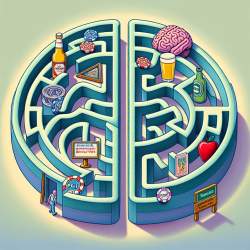Introduction
The landscape of medical education is undergoing a seismic shift with the advent of Generation Z. Born after 1995, this cohort is bringing new challenges and opportunities to medical schools. The research article "Several Ways Generation Z May Shape the Medical School Landscape" offers insights that can help practitioners and educators adapt to these changes. As a speech-language pathologist committed to data-driven decisions, understanding these generational shifts is crucial for optimizing educational outcomes.
Understanding Generation Z
Generation Z is characterized by a preference for face-to-face interactions, a desire to design their own courses of study, and an increased focus on mental health. The data shows a worrying trend: psychological distress is more prevalent among Gen Z than previous generations. A study noted a 63% increase in major depression episodes and a 71% increase in psychological distress between 2005 and 2017. This highlights the urgent need for medical schools to expand counseling services to accommodate this generation's mental health needs.
Volunteering and Entrepreneurship
Volunteering has traditionally been a cornerstone of medical education, providing students with clinical exposure and a chance to serve underserved populations. However, Gen Z shows a reduced motivation to volunteer in traditional settings. Instead, they are more inclined towards entrepreneurial and technological solutions to societal problems. Medical schools should consider integrating entrepreneurial opportunities into their curricula to engage Gen Z students effectively.
Learning Environments
Gen Z students prefer quiet, intuitive spaces over the open, unstructured environments favored by Millennials. They also expect greater technological integration in their learning spaces. Medical schools should consider redesigning educational spaces to accommodate these preferences, which could enhance learning outcomes and professional development.
Learner Perspectives
Gen Z sees themselves as compassionate problem solvers who prefer structured learning activities. They are digital natives but favor blended learning environments that mix online and in-person interactions. Educators should take these preferences into account when designing course materials and curricular transformations.
Conclusion
As Generation Z becomes the predominant cohort in medical schools, institutions must adapt to their unique attributes. By expanding counseling services, integrating entrepreneurial opportunities, and redesigning learning environments, medical educators can better meet the needs of Gen Z students. These changes are not just beneficial for students but are crucial for the future of medical education.
To read the original research paper, please follow this link: Several Ways Generation Z May Shape the Medical School Landscape.










